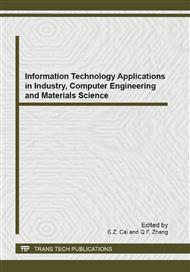p.89
p.93
p.97
p.101
p.105
p.108
p.112
p.117
p.121
Modeling of Random Fatigue Crack Propagation
Abstract:
A statistical model is proposed for the analysis of fatigue crack propagation, based on the theory of fracture mechanics and stochastic process. The fatigue growth process is approximated as a diffusive Markov process. The associated backward Fokker-Plank equation and boundary conditions are written, and the distribution of crack propagation time under a given crack size is obtained by using an Eigenfunction method. The sought distribution is expressed in the form of a convergent infinite series. An examples is presented to illustrate the application of the method. The predicted results seem to agree with the experimental data.
Info:
Periodical:
Pages:
105-107
Citation:
Online since:
September 2013
Authors:
Price:
Сopyright:
© 2013 Trans Tech Publications Ltd. All Rights Reserved
Share:
Citation:


